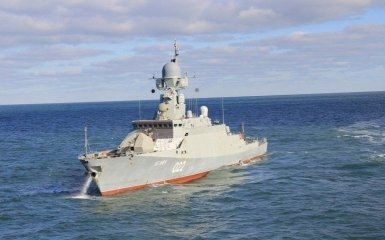During 2023, the port of occupied Mariupol handled at least 65 ships. The total transhipment volume in the port for last year amounted to more than 142,000 tons of cargo, mainly grain and metal products that were stolen in Ukraine. From Mariupol, cargo is taken to three Russian ports and Sevastopol.
The occupiers took out 140 tons of stolen grain and metal through Mariupol port
The Russians use the occupied ports on the coast of the Sea of Azov, Mariupol and Berdyansk to export stolen products from the temporarily occupied territories, as well as for military purposes - delivering weapons and equipment.
As for the routes of illegal export of goods, the Russians themselves inform that ships go from Mariupol to the ports of Rostov-on-Don, Caucasus, Azov, and Sevastopol. In the future, they plan to open routes to Yeisk and Novorossiysk.
Movement of occupiers in Mariupol
Earlier in Mariupol, the movement of occupiers was recorded in the direction of Volnovakha of the Donetsk region.
As noted, mainly personnel and engineering units are moving from the Novoazovsk and Berdyansk directions along the Mariupol-Donetsk road towards Volnovakha.
In addition, the use of concrete structures similar to sections for high-rise buildings in constructing fortifications around Volnovakha was recorded.
Later, in Mariupol, the movement of the occupiers' equipment in the direction of Volnovakha was re-recorded. The Russians also continue to build new concrete fortifications. They are probably preparing for an offensive.
Also, on January 19, the military activity of the occupiers in Mariupol, Donetsk region, increased rapidly. The Russians continue to transfer tracked vehicles and trucks with ammo toward Volnovakha and Vugledar.



